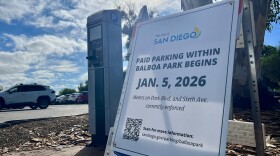While the volatility in the stock market has gotten a lot of attention, many economists are much more concerned about what's happening in the credit markets.
The House's defeat of the bailout plan Monday sent the credit markets into a tailspin. But unlike stocks — which on Tuesday regained 485 of the 777 points lost Monday — the credit market didn't bounce back.
"Very little money is being generated in the credit markets," said Tony Crescenzi, who is the chief bond market strategist for Miller Tabak & Co. "So it's a seizing up of the credit markets, and it's gotten worse since the failure to pass the bailout bill."
Crescenzi said that with the bad news in the financial markets, all kinds of companies have been having trouble raising money. Banks are reluctant to lend, and investors are afraid to buy their bonds.
"Companies are not issuing bonds," he said. "The last two weeks' issuance of bonds has been only about $6 billion — that's about what we typically see in a day."
After the bailout plan was defeated, a key lending rate, the London Interbank Offered Rate, or LIBOR, rose to its highest level in 7 1/2 years. Many lenders peg their credit ratings to this rate, so when LIBOR rises, it becomes more expensive for businesses to borrow.
Delaware-based Theater Xtreme is a small retail chain that sells home theater systems. President Bob Oberosler said his company has had to scale back some of its expansion plans because it can't raise money. He says European investors have suddenly grown much more skittish about lending money to U.S. companies.
"Word I'm getting ... is that they're starting to get a little shaky about the U.S. financial system, and it's best just to hold on to their money and see where this thing shakes out," Oberosler said.
Bush administration officials say a bailout plan can begin to purge some of the bad mortgage debt from and help restore confidence in the nation's financial system.
But Tim Backshall, chief credit strategist at Credit Derivatives Research, said he sees a problem in the plan. According to Backshall, even if a bailout plan is passed, banks may not start lending again right away.
"I hate to be the doomsayer," he said, "but there really is no guarantee that this bailout will provide the credit that the economy needs so badly."
Backshall points to companies like Constellation Energy, a utility that has had trouble raising money in the bond market despite its relatively strong balance sheet. Likewise with a subsidiary of the construction equipment giant Caterpillar, which recently had to pay much higher than expected interest to raise the money it needed.
When even good businesses have trouble getting the capital they need, it suggests that there has been a deep erosion in confidence among companies. And though a bailout might begin to turn things around, it may take time to rebuild trust between lenders and borrowers.
Copyright 2022 NPR. To see more, visit https://www.npr.org. 9(MDAzMjM2NDYzMDEyMzc1Njk5NjAxNzY3OQ001))







